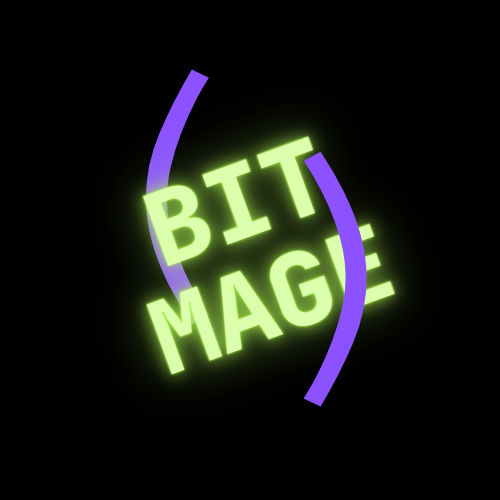Do you really wanna be a Polymath?
Do note that this is an old post (from my last archived blog) that I’m refactoring : more on that here
The Unaltered Entry
[2022-04-17 Sun 17:09] - 8021
3 hours ago, I encountered a semantic crisis. It all started with the thought that I’m not really prepared for a lot of things in life. Now, that in itself is a toxic thought - one can never be prepared for it all but I definitely have time to figure out several things with minimal extra effort. This would definitely result in a lot of uncertainty being cared for. I’ve encountered the nihilistic philosophy before: if complete certainty cannot be achieved, why try clearing away any of the uncertainty you have around you.
Well, now I know better: just the fact that you’re trying to control what you can, will put you in a much better position when things don’t go according to your plan and will render you more capable to figure stuff out.
Undigressing1, this made me think about how dedicated I am to my pursuit of polymathy. I am an etymology nut and the etymology of etymology pertains to the true-sense of a word.
Polymath, arises from the two roots:
- “poly” : pertaining to many
- “mathen”: pertaining to learning
Therefore, polymathy really means:
- being learned in several domains
- being an expert in several domains
- being knowledgeable in several domains
All these are variations of what I intend to reach - I can never be any of these but only ever tend to them. This holds true even for a single domain - there’s always something left to learn. If you’ve noticed the times when I’ve brought up polymathy, I always say “I aspire to be a polymath”.
Well, another psychological conflict I have with polymathy is that it has the root word “poly” - pertaining to many. However, in my post The Polymathic Life, I state that one aspect of the pseudo-polymathic fallacy is seeing all the epistemological structures differently and not unifying them into one big well-connected whole.
Well, the word “Polymath” is in itself saying otherwise. I have fallen prey to the classical fallacy of not accounting for the mental baggage that already coined words bring with them. If I am not truly in alignment with the word itself, I shouldn’t be expecting myself to be subconsciently1 agreeing to dedicate my life to this pursuit.
Then, thanks to the fact that I’m a gnomenphomaniac1, I went on to engineer a word, for three hours, that would truly suit what I want to do with my life - so that I would, truly, be subconsciently in on it and not have to encounter any new semantic crises in the future.
Randomly picking up any etymological root from any ancestor wouldn’t do me good this time. I wanted to swipe off maximum mental baggage and minimize the connotations that it brings along with it in these times of contemporary languages. I also wanted it to sound somewhat crude and primal - that’s just taking care of my personal tastes.
The first major shift I want to make is to include temporality into the picture instead of quantifying how much I know. I can never say I know it all, but I can definitely believe that I’m always seeking something.
Secondly, I ask more questions than I have the answers to and that I believe in strongly. I’m an inquirer.
Therefore, I do not wish to be the All-Knowing but the Always-Inquiring.
This also helps me tackle the mental hurdle of the word “polymath” introducing the assumption of epistemology tending to loosely connected structures of different domains and move on to the more beneficial dogma of seeing it all as one big unified whole.
I’m an AEFRAISK
I derive this from two roots:
- [ash]fre : “ever”/“always” from Old-English2
- aisku : “ask” from Proto-West-Germanic
Note that languages are a way how the community chooses to express the connectivity of several groups of abstractions.
I’ve tried choosing the oldest possible ancestors I could get for these roots.
I aspire to be a polymath, no more.
I am an aefraisk, henceforth.
The Commentry
I do remember thinking really hard about what I’m doing then. Epistemelogy was something that I actively studied those days and was heavily conflicted whenever I used “polymath” as word that I didn’t believe in.
I did give words a lot of importance then. It was a phase that I don’t particularly despise nor admire too much. I do find linguistics and its daughter domains quite interesting but if you venture a little too deep, you may implicitly start taking conversations a little too literally and miss out on the joys of a casual chat due to being in constant awe of how the human race came to use a certain phrase over time.
As of now, I believe in using words that exist and will just be more descriptive if I encounter an “un-atomically-expressible-notion”. Creating your own stuff is cool and all, but it’s mostly an unnecessary overhead and I’d rather prefer being lexically lean.
AAIN -> this is something I did in my previous blogs : a lot of abbreviations and cooking up new terminology for which I maintained a personal dictionary on the blog itself. AAIN is supposed to be a meta-abbreviation that I don’t recall as of now. If a word didn’t show up in a dictionary and I felt like using it, I’d just add it to my personal glossary - A little imature, I know.. ↩︎ ↩︎ ↩︎
“ash” : � is unicode 00e6, � is unicode 00c6; I use emacs: C-x 8 RET “code” does the job -> it isn’t rendering on the new static site… replacing all instances with “AE” ↩︎
